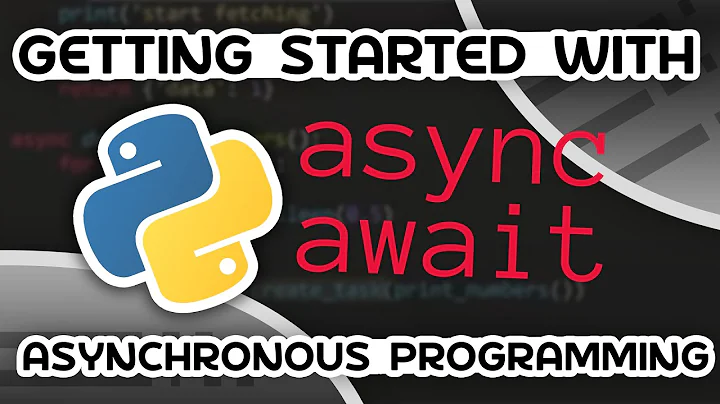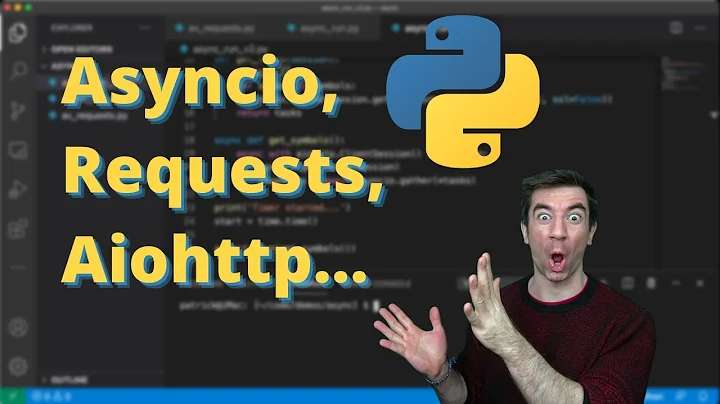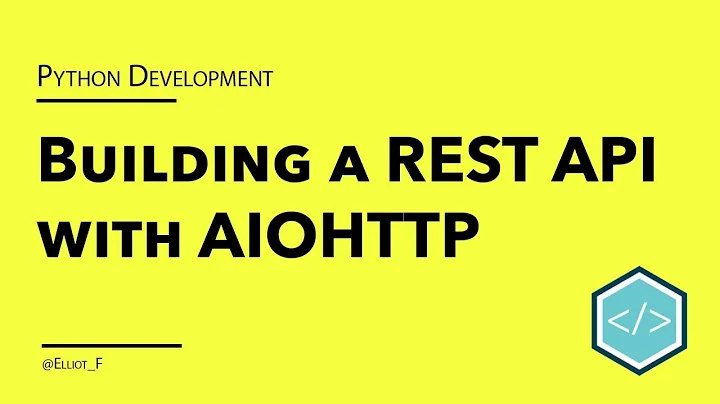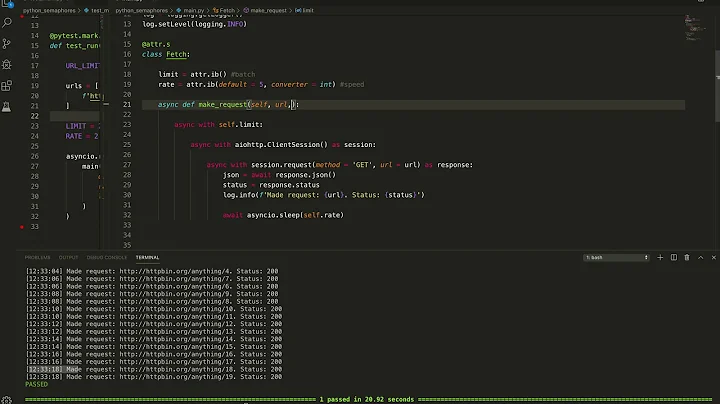aiohttp client_exception ServerDisconnectedError - is this the API server's issue or aiohttp or my code?
Solution 1
It is most likely caused by the configuration of the HTTP server. There are at least two possible reasons for the ServerDisconnectedError:
- The server could limit the number of parallel TCP connections that can be made from a single IP address. By default,
aiohttpalready limits the number of parallel connections to 100. You can try reducing the limit and see if it solve the issue. To do so, you can create a customTCPConnectorwith a different limit value and pass it to theClientSession:
connector = aiohttp.TCPConnector(limit=50)
async with aiohttp.ClientSession(connector=connector) as session:
# Use your session as usual here
- The server could limit the duration of a TCP connection. By default,
aiohttpuses HTTP keep-alive so that the same TCP connection can be used for multiple requests. This improves performances since a new TCP connection does not have to be made for each request. However, some servers limit the duration of a TCP connection, and if you use the same TCP connection for many requests, the server can close it before you are done with it. You can disable HTTP keep-alive as a workaround. To do so, you can create a customTCPConnectorwith the parameterforce_closeset toTrue, and pass it to theClientSession:
connector = aiohttp.TCPConnector(force_close=True)
async with aiohttp.ClientSession(connector=connector) as session:
# Use your session as usual here
I had the same issue and disabling HTTP keep-alive was the solution for me. Hope this helps.
Solution 2
This is most likely the server's API not being happy with multiple requests being done asynchronously. You can limit the amount of concurrent calls with asyncio's semaphores.
In your case I would use it within a context manager as:
async def do_stuff(self, data):
print('queueing tasks')
tasks = []
semaphore = asyncio.Semaphore(200)
async with semaphore:
async with aiohttp.ClientSession() as session:
for row in data:
task = asyncio.ensure_future(self.async_post('my_api_endpoint', session, row))
tasks.append(task)
result = await asyncio.gather(*tasks)
self.load_results(result)
Related videos on Youtube
hyphen
Updated on June 27, 2022Comments
-
 hyphen over 1 year
hyphen over 1 yearI'm getting an aiohttp client_exception.ServerDisconnectedError whenever I do more than ~200 requests to an API I'm hitting using asyncio & aiohttp. It doesn't seem to be my code because it works consistently with smaller number of requests, but fails on any larger number. Trying to understand if this error is related to aiohttp, or my code, or with the API endpoint itself? There doesn't seem to be much info online around this.
Traceback (most recent call last): File "C:/usr/PycharmProjects/api_framework/api_framework.py", line 27, in <module> stuff = abc.do_stuff_2() File "C:\usr\PycharmProjects\api_framework\api\abc\abc.py", line 72, in do_stuff self.queue_manager(self.do_stuff(json_data)) File "C:\usr\PycharmProjects\api_framework\api\abc\abc.py", line 115, in queue_manager loop.run_until_complete(future) File "C:\Python36x64\lib\asyncio\base_events.py", line 466, in run_until_complete return future.result() File "C:\usr\PycharmProjects\api_framework\api\abc\abc.py", line 96, in do_stuff result = await asyncio.gather(*tasks) File "C:\usr\PycharmProjects\api_framework\api\abc\abc.py", line 140, in async_post async with session.post(self.api_attr.api_endpoint + resource, headers=self.headers, data=data) as response: File "C:\Python36x64\lib\site-packages\aiohttp\client.py", line 843, in __aenter__ self._resp = await self._coro File "C:\Python36x64\lib\site-packages\aiohttp\client.py", line 387, in _request await resp.start(conn) File "C:\Python36x64\lib\site-packages\aiohttp\client_reqrep.py", line 748, in start message, payload = await self._protocol.read() File "C:\Python36x64\lib\site-packages\aiohttp\streams.py", line 533, in read await self._waiter aiohttp.client_exceptions.ServerDisconnectedError: Nonehere's some of the code to generate the async requests:
def some_other_method(self): self.queue_manager(self.do_stuff(all_the_tasks)) def queue_manager(self, method): print('starting event queue') loop = asyncio.get_event_loop() future = asyncio.ensure_future(method) loop.run_until_complete(future) loop.close() async def async_post(self, resource, session, data): async with session.post(self.api_attr.api_endpoint + resource, headers=self.headers, data=data) as response: resp = await response.read() return resp async def do_stuff(self, data): print('queueing tasks') tasks = [] async with aiohttp.ClientSession() as session: for row in data: task = asyncio.ensure_future(self.async_post('my_api_endpoint', session, row)) tasks.append(task) result = await asyncio.gather(*tasks) self.load_results(result)Once the tasks have completed, self.load_results() method just parses the json and updates the DB.
-
 Quanta about 3 years
Quanta about 3 yearsaiohttp.Semaphoreis now depreciated -
 Brian about 2 years@Quanta
Brian about 2 years@Quantaaiohttp.Semaphoreis not deprecated. Theloopparameter is deprecated because that param is being removed across the board inaiohttpSee docs.python.org/3/library/asyncio-sync.html#asyncio.Semaphore








